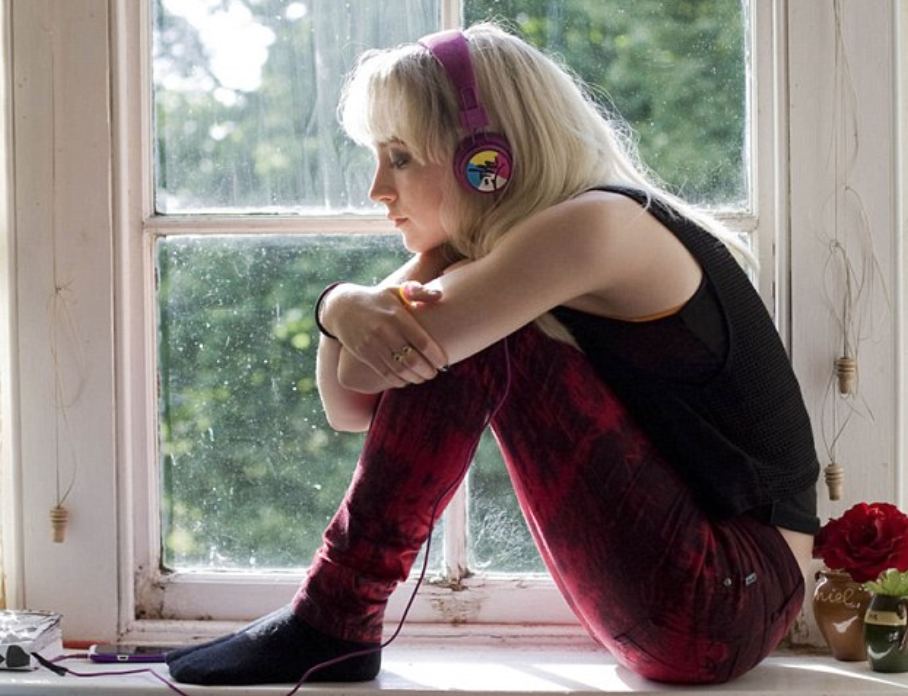While not necessarily a book that screams, “Ripe for adaptation,” Meg Rosoff’s 2004 novel, How I Live Now, was perhaps a foretelling of just how popular and bankable the YA genre would become (it was only a year later that Stephanie Meyer’s Twilight series would commence) in subsequent years for the film industry. Except Rosoff, unlike so many others who would come after her, had the rare opportunity to provide her narrative with a touch more grit than the average American-helmed, teen-oriented series.
When brought to life on the screen by a pre-Lady Bird Saoirse Ronan, the brooding, self-loathing anti-heroine, Daisy (real name: Elizabeth, but, as she says, “No one calls me Elizabeth, except my dad. And he’s an asshole.”), is even more true to reality in terms of how many a person–particularly female–interacts internally with herself. Infinite insecurities constantly abounding, the only thing that a girl can really be sure of is that she’s a total piece of shit who will never be worthy of anything or anyone. That’s precisely why Daisy isn’t surprised when her father–her own flesh and blood–sends her off to England to live with her Aunt Penn (Anna Chancellor) when his new wife becomes pregnant. It doesn’t exactly do much to boost her self-esteem in a way that would effectively prevent the repetitive internal monologue that is as follows from playing at the outset:
“Imagine yourself being successful. Five exercises to make your butt smaller. Big, fat, ugly butt. The possession of will power and self-discipline can be the factor leading to success. Useless bitch. Eighty-eight pounds. You’re disgusting, do you know that? Focus on your goal. Sensitivity or allergy can reduce… God, I hate poor people…in the body. What is your problem?! Hair is your crowning glory. If you’ve got it…Fuck you! Then style it in a way that flatters your face and choose a great color if you don’t like your own. If you want to, try some teeth-whitening solutions. Teen-dating abuse and violence is happening everywhere. Take risks. Fat bitch. Step out of your comfort zone. Successful people think big and act big. Why men pull away. Remember that success does not guarantee happiness. Accept life is unfair. Are my hips normal? Accept life is unfair. Fact. Eggs can live…Don’t give up. If you don’t give up, you can’t fail. You can’t fail. You can’t fail. You can’t fail.”
Of course, these bouts of internal rage and self-loathing are often timed well to coincide with staring at herself in the mirror as though it’s the ultimate void. And when you despise yourself and all your imperfections as much as Daisy, there’s no better tableau to replay your broken record of vitriol than in front of the one place that will tell you just what you are (worthless, hideous and all that rot): the mirror. Never one for sugar coating things, it’s an entity that quite literally reflects back to yourself what you’ve already been confirming in your head ad nauseum. That’s right: you’re nothing.
With the screenplay adapted by a trio of Brits, Tony Grisoni, Jeremy Brock and Penelope Skinner, the Bostonian-tinged original prose of Rosoff melds perfectly with Daisy’s contrarian nature–in full swing against her British cousins as they try their best to break down her barriers. One cousin in particular, Eddie (George MacKay), seems to do so without having to try half as much as the others. In case you can’t infer what that means: there’s some Flowers in the Attic shit going on. And, surprisingly, despite the fact that her blood relation just had to be the first boy/person she ever felt connected to, Daisy is the one to try to bring reason into the occasion by initially rebuffing his physical advances. Funny how the voices in her head that tell her what to do seem to disappear in this instant.
And once she falls down the rabbit hole of l’amour, now, all of the sudden, she’s concerned with the narrative taking place outside of her husk. So self-consumed with her own false perceptions of her body and worth at first, Daisy is immune to all the telltale signs leading up to the imminent grand world shakeup foretold by reports of a bombing in Paris as she gets off the plane at Heathrow. Her nonplussed attitude about it is an indication of just how geared toward her own, by her estimation, cataclysmic problems she is. Unfortunately, sometimes it can take a real cataclysm for some of us to realize just how middling our problems really are. How, well, white girl, to be more specific. The perpetual body consciousness, the conviction that everyone is looking at her when, in truth, the white girl look hasn’t been alluring since the 50s. It all spells out the sort of self-preoccupation that inevitably leads to a lack of confidence. But what can a girl do? She just wants to be beautiful in a way that gets noticed while also being a feminist and in total control. It’s a lot to juggle, hence the unshakeable voices. The monologue that tells you you’ll never be Black Swan (mixing movie metaphors here, as is my usual schizophrenic predilection).





















